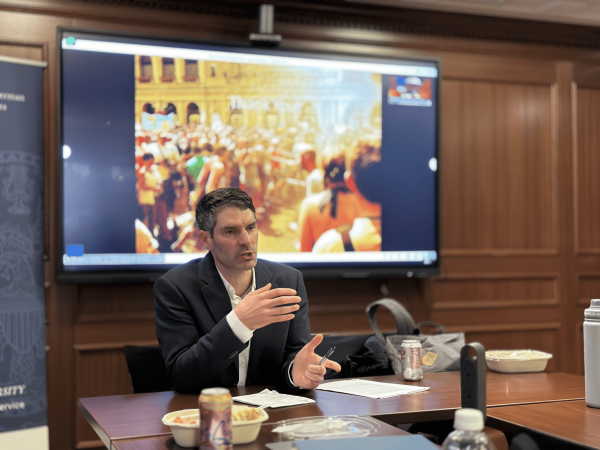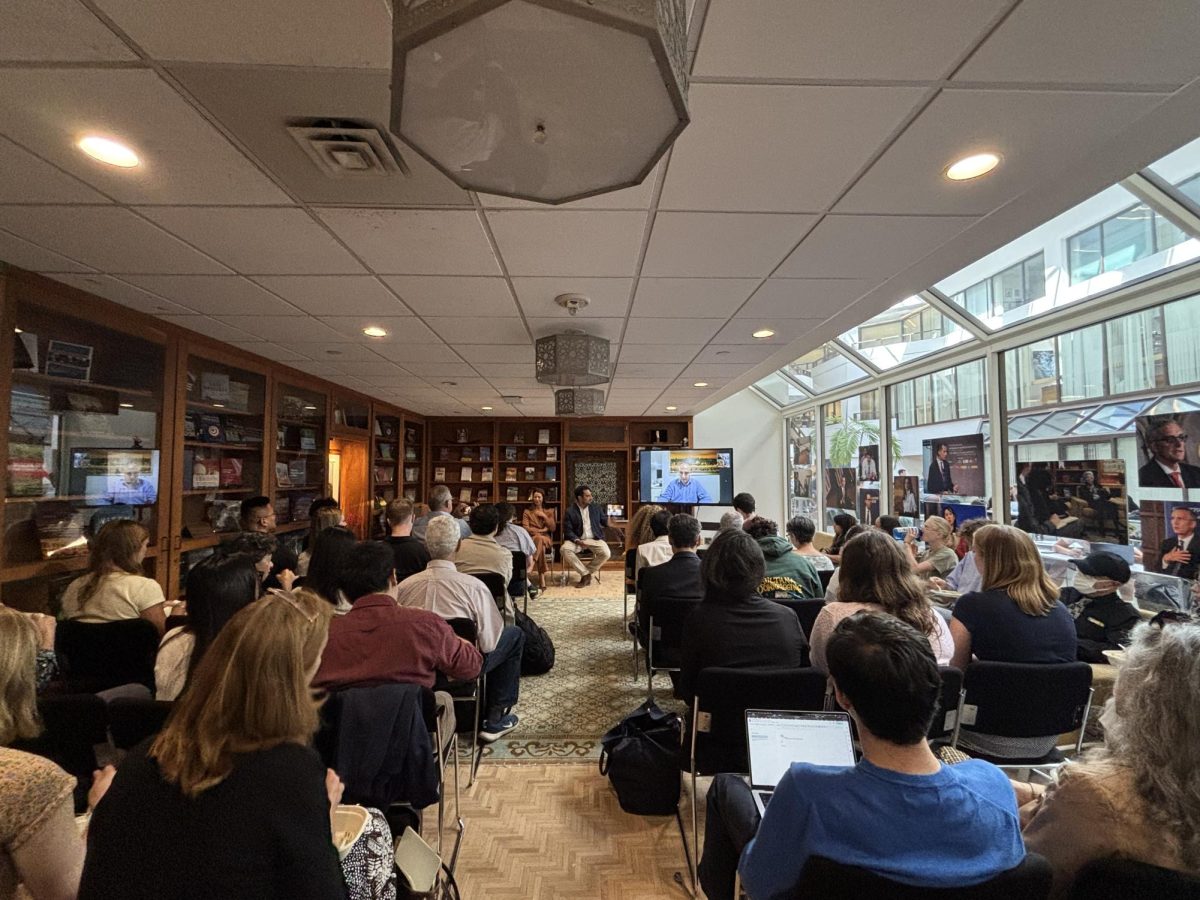An academic researcher examined how anti-LGBTQ+ movements have built increasingly strong international networks at a Georgetown University event Feb. 6.
Phillip Ayoub, an international relations professor at University College London, warned that anti-LGBTQ+ movements are surging as they strategically build global coalitions. The BMW Center for German and European Studies (CGES), which researches European affairs, hosted the event, centering on Ayoub’s book titled “The Global Fight Against LGBTI Rights,” in which he draws comparisons between strategies used by both anti- and pro-LGBTQ+ rights movements.

Ayoub said these international networks formed when groups felt threatened by new ideas they perceived as foreign encroachments on their way of life.
“LGBTI rights and issues around gender and sexuality in general have been so easy to mobilize against because they symbolize some kind of fluidity that can easily be portrayed as destabilizing to the fixity of nation or fixity of religion,” Ayoub said during the event.
Ayoub said the movement’s actions, including President Donald Trump’s recent executive order banning transgender women from playing women’s sports and the removal of “gender ideology” language from federal websites, repurpose human rights frameworks.
“This idea that women need to be ‘protected’ from trans people, which is a big message in the gender ideology framework, is using human rights language in a very constructed and problematic way that is quite sinister,” Ayoub said. “They’re using some of these human rights discourses but in a new way and always relating to ‘gender ideology.’”
Ayoub said these networks mimic the pro-LGBTQ+ movement’s global methods, which tailored strategies to appeal to specific communities, citing the example of Polish activists naming pride parades with biblical verses.
“Domestic LGBT movement organizations were also embedded in these transnational advocacy networks around LGBTI rights,” Ayoub said. “And so they played a two-level game, where they could take a contentious norm — one that wasn’t always resonating very easily in all states — and package it and frame it and try to craft a resonance in certain new contexts.”
Ayoub said both advocates and opponents of LBGTQ+ rights operate in direct opposition while using similar strategies, thus influencing each other’s messaging.
“We use a metaphor around the double helix, that it forces both movements into dialogue with each other,” Ayoub said. “It might explain why LGBT groups have to talk about family values more than before and why anti-LGBT rights crusaders are talking about human rights more — but, of course, in a very, very different way.”
James Evans, a George Washington University history professor who attended the event, said Ayoub encouraged him to consider the hidden power of anti-LGBTQ+ activism, even in countries that have embraced LGBTQ+ rights.
“It’s helping us rethink through a lot of our assumptions about what transnational advocacy actually is or does,” Evans told The Hoya. “There’s often an assumption that when a policy win happens in the United States, the fight is over. But this is really proving that battles over things like human rights or over what counts as a family or what counts as traditional values is really in flux.”
Ayoub said the movement’s tactics have given it more power and influence, bolstered by disproportionately greater funding that threatens LGBTQ+ rights efforts.
“We do see that the claims of these movements seem quite resonant,” Ayoub said. “They are able to mobilize and garner quite a bit of attention in many different places.”
“These moral conservative groups, the anti-gender groups, have much, much more funding resources and much more powerful funding actors behind them than LGBT activists, which are really resource-poor in comparison,” Ayoub added.
The anti-LGBTQ+ network includes right-wing religious groups, digital advocacy platforms that translate petitions across languages and conservative political organizations, all of which receive funding from international and U.S. donors, according to Ayoub.
Ayoub said the rise of the anti-LGBTQ+ movement has forced many rights movements to center their efforts domestically, abandoning previous strategies of international solidarity.
“There’s much more talking in a localized or nationalized way, using indigenous terminologies, using indigenous histories of queer people in specific countries, in a way to signal place in a specific context that leaves behind some of this international framing,” Ayoub said.
Evans said the event helped illuminate the role of the anti-LGBTQ+ movement in mainstream discourse and as it relates to pro-LGBTQ+ rights efforts.
“It shows that this is a very dynamic process — you only have an anti-LGBT movement if you have an LGBT movement, so understanding how both of those sides interact, that’s the really important nugget of a talk like this,” Evans said.








